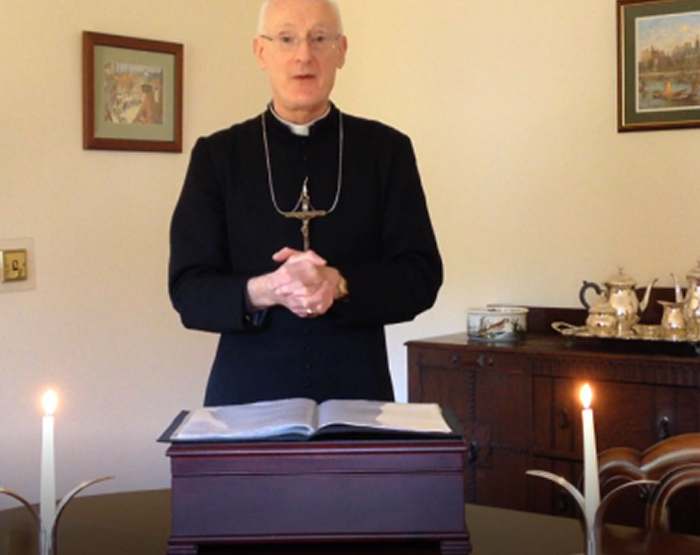Bishop’s Address to Diocesan Synod: 13 July 2023
Following previous addresses to Diocesan Synod on scripture, on ethics, Natural Law and the ordering of a Christian society, I share with us this evening three great classical texts from the early Christian period, a time as troubled as our own:
- St Augustine of Hippo (354-430): Confessions
- St Benedict of Nursia (480 –ca. 550): The Rule of St Benedict
- St Gregory the Great (540-604): The Pastoral Rule
Benedict was born 50 years after the death of Augustine, Gregory lived sixty years after Benedict. As the lights of classical civilisation and the later Roman Empire were extinguished by Vandals, Lombards and others, and as Europe entered into the ‘Dark Ages’, three scholars offered words that kept the faith and that shaped and formed European society, and still do so today. How might we summarise them?
Augustine: He speaks to us of the process of conversion of life to the will of God – and much, much more. Life is to be lived as an offering of gratitude to God. The existence of all things is under God, and therefore we look always for the essential goodness of what is created, as it is of God. Augustine writes of the beauty of God. In a memorable passage, he describes the death of his mother Monica, whose prayers (alongside the preaching of Bishop Ambrose of Milan) were the cause of his conversion to Christian faith, and who asked only that Augustine ‘remember her at the altar’ after her earthly death. May we pray for those close to us, as earnestly and as fruitfully as Monica prayed for her son. Augustine writes of the beauty if God, and so his writing is itself beautiful.
Benedict: In his Rule for ordering the life of a community (monastic, but also relevant to secular community in much of its teaching), Benedict offers us a call to obedience, work and discipline; humility, hospitality and compassion; the ordering of common life; gentleness, tempered with firmness in Christ. He calls us to a life earthed in the love of God, and characterised by care and compassion for one another, and by integrity and truthfulness.
Gregory: Gregory’s Pastoral Rule is offered go all who exercise any form of Christian leadership. It was translated into English by King Alfred (also known as ‘Great’), who forwarded it to all in any position of leadership – sacred or secular – in his kingdom. It sets before us a call to Humility as the antidote to the besetting risk of pride; and it reminds us that we are to engage, life-long, in the constant process of learning, in order to teach the people committed to our care.
I offer these great texts of the early Christian Church as writings that have been instrumental in my own formation, and that I have attempted to hold close to my heart in my ministry here as bishop. As that ministry comes to its conclusion, I offer them to you once again, and I thank you for all that I have learned from you in our time together.


